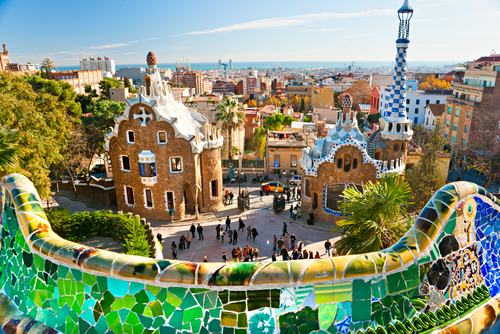Tourists heading to Barcelona and other popular destinations in Catalonia, including resorts along the beautiful Costa Brava, could soon face a significant increase in their holiday expenses due to a new proposal to double the region’s tourist tax. In an agreement signed last Thursday, the Catalan government granted permission for both Barcelona and other Catalan resorts to raise the existing tourist tax, with potential increases of up to €15 per person per night.
What Does This Mean for Tourists?
Currently, Barcelona charges €5.70 per night for guests staying in four-star hotels, and €7.50 for those in five-star accommodations. However, the new tax hike could see these fees rise, making Barcelona the most expensive city in Europe for tourist taxes. If the increase is fully implemented, tourists will pay more tax per night than in other major European cities, overtaking Paris, which charges up to €11.38, and Rome, which levies a tax of €10 per night.
While the increase is still in the planning stage, with Mayor Jaume Collboni assuring that the decision will be ‘thoughtful and reasonable,’ it has sparked a mix of reactions from various stakeholders in the tourism sector. Collboni did not specify when the hike would take effect but hinted that it could be part of next year’s budget discussions.
A City Divided: Support and Opposition
Supporters of the tax increase, such as David Cid, a spokesperson for the left-wing Comuns party, argue that it is a ‘proportionate and fair’ move. Cid emphasised that, given the increasing number of tourists in Catalonia, the higher tax would not be a burden for those already paying hundreds of euros per night for their accommodations. He pointed out that similar taxes are being introduced across Europe, and the increased revenue could help support tourism infrastructure.
However, not everyone is on board with the proposed rise. The Barcelona Hotel Association has voiced strong opposition, warning that such an increase could harm the city’s competitiveness in attracting international visitors. The association has called for a larger portion of the revenue generated by the tourist tax to be reinvested into improving tourism infrastructure rather than being used for housing purposes, with at least 25% earmarked for the latter.
Tourism associations along the Costa Brava, including the Costa Brava-Pirineu de Girona tourist apartments’ association, have also raised concerns. Esther Torrent, the association’s President, highlighted that for families traveling with multiple people, the increased tax could multiply their holiday costs significantly. Girona hotels have similarly rejected the proposal, fearing it could discourage visitors from coming to the region.
The Wider Impact on Catalonia’s Tourism
As well as Barcelona, other Catalan hotspots, including Salou, Tarragona, Lloret de Mar, and Sitges, will be able to implement a similar surcharge if they wish, with the same rules potentially applying across the region. This means that tourists across Catalonia could see their bills increase as the new measure takes effect in various resorts.
For now, Catalonia remains a top destination for millions of tourists each year. However, this change could have a noticeable impact on how the region is perceived by potential visitors, especially those who may feel the cost of their stay is climbing too high.
In summary, while the tourist tax increase aims to raise funds for better infrastructure and housing, its potential impact on Catalonia’s tourism economy remains uncertain. Visitors to Barcelona and beyond will need to keep an eye on developments as this new measure progresses. Whether the tax hike will help improve the region’s offerings or simply add to the cost of a holiday in Catalonia remains to be seen.
Picture Credit: Shutterstock








Comments are closed.